Episodes
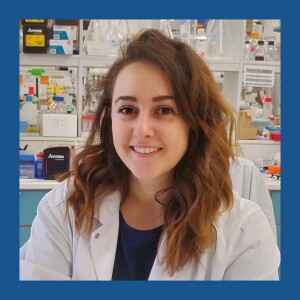
Thursday May 13, 2021
Thursday May 13, 2021
Get the Papa PhD Tool kit !
This week on the show, I'm talking with Sarah Nersesian, a PhD researcher who pursues many passions and interests in life, while remaining a scientist at heart. During our conversation, we talk about making decisions during your academic journey, about finding ways of nurturing your creative side during your PhD, and about the important role mentors can play in your life, especially as a woman in academia.
What you’ll learn about in this episode:
The importance of choosing an academic path that fits youHow you can gain PhD-adjacent experience through internshipsSarah's charged schedule and how she finds balance in itHow dividing her self-worth between her different centers of interest helps her deal with failureWhat launching a business during your PhD can look likeHow finding a mentor can help you launch your projectHow small startup grants could help you take the first stepsDo you enjoy Papa PhD? Leave me a comment here - one short sentence is enough! And be sure to include your Twitter handle – that way, I can thank you personally! Or if you prefer, fuel my long audio editing and notes page writing nights by buying me a coffee! Just click on the button below and voilà! An espresso, a cappucino, a latte – you decide. I'll be immensely grateful.
Buy me a coffee !
Sarah Nersesian is a passionate researcher who loves to share scientific knowledge through illustrations and other visual communication strategies. She obtained her MSc in Biochemistry and Cell Biology at Queens University and is currently completing her Ph.D. in Microbiology and Immunology at Dalhousie University focusing on exploring the impact of intra-tumoural immune cells on tumour development and treatment responses.Over her academic journey, she has published her research in journals including, Scientific Reports, Oncoimmunology, Frontiers of Immunology, The Journal for Immunotherapy of Cancer and the British Medical Journal. Many of these publications were accompanied by her custom scientific illustrations. With her unique expertise combining scientific communication strategies with illustration and graphic design, Sarah founded Designs that Cell in 2017. Sarahs vision for the company was a space where scien-artists such as herself and others could combine their scientific foundation with their visual communication skills to illustrate the ideas of other members of the scientific community.She is a senior illustrator at Designs that Cell and oversees all its operations.
Thank you, Sarah Nersesian!
If you enjoyed this interview with Sarah, let her know by clicking the link below and leaving her a message on Twitter:Click here to thank Sarah Nersesian on Twitter!Click here to share your key take-away from this interview with David!
Sarah's pearls of wisdom:
“You know, if somebody looked at my CV, they would be super impressed and, you know, would praise X, Y, and Z. But if I honestly put together a failure CV, it would be like a novel. It would be thicker than the Bible. The reality is, I've had so many people close doors in my face. I've had so many people question why I've been at a table, why I've been doing something. And I think having that worth, that self-worth divided and not having it into just your research project, like you were saying, David, is so important, because now I don't look at myself as like, "Okay, I'm a scientist. And if I'm not a scientist, then I'm nothing else." It's – no, I'm a scientist, and I'm an entrepreneur, and I'm an artist, and I'm a role model, and I'm a feminist, and I have these identifiers, you know? And, like, I'm a wife now and a dog mom. And there's all these things that I hold my self-worth into. That way, if I question something, it's not everything.”“It's not that male professors can't understand, but at the same time, they haven't carried children, thay haven't had to balance the expectations of being a ...
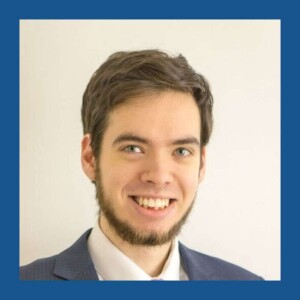
Thursday May 06, 2021
Thursday May 06, 2021
This week on Papa PhD, I'm bringing you Wilf Nelson. Wilf is a PhD researcher at the University of Bigmingham in the UK and he is the host and producer of the Watercooler Neuroscience Podcast. During our conversation, Wilf shared his passion for science, for science communication, and for podcasting. And if you listen to the end, you'll hear what advice he has to share as a PhD researcher turned entrepreneur.
What you’ll learn about in this episode:
The main goal of science communication The difference between talking science within academia and in the context of public engagementThe inner workings of content creation and of podcastingWhy you should get involved in entrepreneur groups in university and in graduate schoolDo you enjoy Papa PhD? Leave me a comment here - one short sentence is enough! And be sure to include your Twitter handle – that way, I can thank you personally!
Buy me a coffee !
Wilf Nelson is a neuroscience PhD who now runs a media company that produces a number of shows on the brain, talking not only about what the research finds but also teaching their listeners to understand HOW the research is done.
Thank you, Wilf Nelson!
If you enjoyed this interview with Wilf, let him know by clicking the link below and leaving him a message on Twitter:Click here to thank Wilf Nelson on Twitter!Click here to share your key take-away from this interview with David!
Get the Papa PhD Tool kit !
Wilf's pearl of wisdom:
“David: In your vision, why is it important for some proportion of scientists to become science communicators in more of a formal, in kind of a high quality way? Wilf: I can explain it very simply, you are paid by public money. That means the public pay your bills and they have the right to know what you do. Or they, in a democratic society, can shut you down. That's it. That is the fundamental basis. If you take their money, if you take tax payer money and are not capable of explaining to the public what you do on a level that they can understand, because I should make an aside – say that somebody chose to be an accountant, right? They chose their formative years to spend learning finance and accountancy. You spent it to learn to be a biologist. They are no lesser because they didn't do your degree. You have to explain it in a standard that they can explain, because you are the one with the privileged education to be able to.”
This episode’s resources:
Wilf Nelson | LinkedInWilf Nelson | TwitterWatercooler Neuroscience Podcast | Website
Join the Papa PhD Postgraduate Career Exploration Group!
You might also like the following episodes:
Jessica Steinberg – Being a PhD Researcher and an entrepreneurChris Kent – Leveling up to entrepreneurshipMargaret Magdesian – From the bench to entrepreneurshipClarissa Wright – Promoting the intersection between science and art
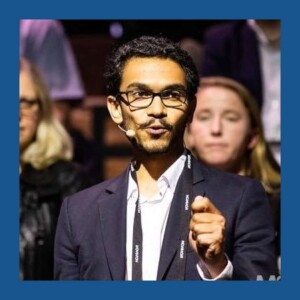
Thursday Apr 29, 2021
Thursday Apr 29, 2021
Télécharge la "Boîte à outils pour le doctorat" maintenant !
Cette semaine sur le podcast, on parle réseautage et mise en relation des docteur.e.s et du milieu privé avec Florian Andrianiazy, Directeur Général de PhDTalent. Aujourd'hui, en 2021, il y a encore un certain flou, tant dans l'idée que se font les docteur.e.s du milieu entrepreneurial que dans les attentes qu'ont les RH des sociétés face à un candidat qui se présente avec un doctorat.
Ce que tu apprendras dans cet épisode :
En quoi consiste une thèse CIFREL'importance de se familiariser avec le tissu socio-économique pendant sa thèseL'impact de la pandémie de COVID-19 sur les événements de réseautage et de recrutementLe modèle et les projets de PhDTalent en 2021Tu aimes Papa PhD ? Laisse-moi un commentaire ici - une courte phrase suffit ! Et inclus ton identifiant Twitter – comme ça je pourrai te remercier personnellement !
Florian Andrianiazy est docteur en physique de l'Ecole Polytechnique. Il a soutenu sa thèse en mars 2015 qu'il a effectuée en partenariat avec Thales, une grande entreprise française d'aéronautique, aérospatial et défense. En janvier 2017, il co-fonde PhDTalent avec 3 docteurs. L'entreprise a pour but d'accélérer le rapprochement entre le monde académique et le secteur privé.
Merci Florian Andrianiazy !
Si cet entretien avec Florian Andrianiazy t'a plu, fais-lui en part en cliquant sur le lien ci-dessous et en lui laissant un message sur Twitter :Clique ici pour remercier Florian sur Twitter !Clique ici pour partager avec David le principal message que tu retiens de cet épisode !
Les perles de sagesse de Florian :
« En l'occurrence, je ne sais pas si c'est une question de compétences, mais c'est plutôt une question de connaissance du monde socio-économique. Et c'est ce que je remarque aujourd'hui et c'est ce que je dis à tous les doctorants que je croise, c'est : "Intéressez-vous au monde socio-économique, intéressez-vous au mode de fonctionnement d'une entreprise – comment elle est structurée, comment elle fonctionne." Et ça, pour le coup comme j'étais en thèse dans une entreprise, ça, je le voyais au jour-le-jour. Et je n'avais pas besoin de l'apprendre ou de le découvrir par ailleurs, puisque c'était mon quotidien. Et, donc, ce n'est pas tellement une question de compétences. Je pense que c'est plutôt une question connaissance de cet écosystème-là. »« C'est valable dans les deux sens. C'est-à-dire que oui, on fait tomber des prégujés que peuvent avoir des entreprises sur ce qu'est un chercheur, sur comment travaille un chercheur et sur ce que peut livrer un chercheur sur une mission aussi courte, mais l'inverse est vrai, aussi. C'est-à-dire qu'on fait tomber des préjugés sur ce qu'est une entreprise. Parfois on a des jeunes chercheurs qui ont un peu peur de collaborer avec un entreprise et, justement, on fait tomber ces préjugés-là, aussi. »
Les ressources de cet épisode :
Florian Andrianiazy | TwitterFlorian Andrianiazy | LinkedInPhDTalent | Site web | Événements : PhD Meeting AI & Data Science – 19 mai 2021 ; PhD Meeting Consulting – 24 juin 2021 ; PhDTalent Career Fair 16 – octobre 2021
Tu aimeras aussi ces épisodes :
Boîte à outils pour les études doctorales – Mon cheminement : PapaPhD.com/37Elodie Cheyrou – Rapprocher science et société : PapaPhD.com/91Marie-Andrée Fallu – Faire rayonner la science : PapaPhD.com/93Martha Boeglin – Débloquer la rédaction de thèse : PapaPhD.com/96
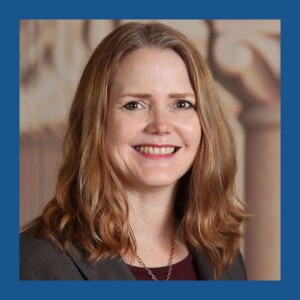
Thursday Apr 22, 2021
Thursday Apr 22, 2021
Do you need a PhD? When I launched into the doctoral adventure, I wanted to teach at the same level the professors I worked with did. So for me, the answer was yes. In today's episode, My guest, Sherri Widen, shares her journey and her reflections on the reality of the PhD career today and talks about how she found a path that led her to doing research and applying her expertise in child psychology at the community level, in the non-academic space.
What you’ll learn about in this episode:
The huge difference between a CV and a resume
How projecting your whole self (not only your academic skillset) outside academia can help you find your place
How long in average you can expect to be on the job hunt in betweeen positions
What happens when your supervisor moves to another university during your PhD
The importance of finding a community when starting graduate school in a new city
Think if having an applied aspect to your research can open doors for you, in terms of interdisciplinarity and collaboration, but also of widening your professional horizons
Do you enjoy Papa PhD? Leave me a comment here - one short sentence is enough! And be sure to include your Twitter handle – that way, I can thank you personally!
Support the show on Patreon !
Sherri Widen has an extensive background in investigating the development of childrens concepts of emotions.
In 2013, she transitioned from basic research in developmental psychology to more applied intervention research in education settings with a focus on increasing childrens social-emotional skills to support their academic outcomes. In 2015, Sheri joined a team at the Stanford University Graduate School of Education and contributed to a text messaging-based parenting intervention designed to help parents support their preschoolers school readiness in literacy, math, and social-emotional skills. In 2018, she joined Committee for Children as the Director of Research, to help children thrive through our social-emotional learning interventions.
Thank you, Sherri Widen!
If you enjoyed this interview with Sherri, let her know by clicking the link below and leaving her a message on Twitter:
Click here to thank Sherri Widen on Twitter!
Click here to share your key take-away from this interview with David!
Download "Tools for Your PhD Journey" !
Sherri’s pearls of wisdom:
“My plan was to become a professor and to continue the basic research I was doing, but I think it's really smart to open up some doors so that you have other options if that first plant doesn't work out. So I think I could have made the transition to doing applied research in educational settings around social-emotional learning a lot earlier if I had considered that I needed a different plan or, at least, a backup plan. I think we get really focused in grad school on the one thing that we're doing, and how we're going to keep doing that and, really, grad school is the great time to look at other opportunities, get other experiences and see if there are other things that you could also really, really love.”
“It wasn't until after I had my PhD that I realized that there were just so many PhDs on the market, right now, that it's so hard to get a position as a professor. So when I talk to people who are going into grad school or part way through their progam, and they're like "should I apply for masters or a PhD? What do I need?" I recommend that they go and look at positions that they're interested in. So if you really want to be a professor, a PhD is a definite requirement. But for a lot of the positions I applied to before I got this one, a PhD wasn't required. It was a nice to have. But you could get those kinds of positions with a masters degree, so I think that's something to give serious thought to – how much education do you need to do the kind of job you want to do.”
This episode’s resources:
Sherri Widen | LinkedIn
Sherri Widen | Twitter
The Imagine Neighborhood | Website
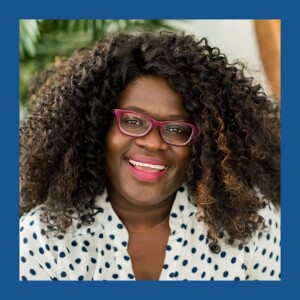
Thursday Apr 15, 2021
Thursday Apr 15, 2021
My experience going through graduate school was mostly of graduate students being fully funded and working exclusively on their PhD, at least until the time came to write their thesis. But this is not the reality for everyone and in all domains of research. Today, I'm bringing you a conversation with Gertrude Nonterah about her journey so far, about her side-hustles during graduate school, abouth her life balance and time management life hacks, and about how she juggles her professional, personal, and family life, today.
What you’ll learn about in this episode:
How to start freelancing as a writer and as a social media managerThe key to finding those two magic hours in your day to push your side-projects forward while juggling work and familyThe power of having a blog for showcasing your writing/content creation abilitiesGee's favorite productivity hacks/toolsThe importance of highlighting your hard skills and your soft skills, during your graduate studiesHow humility and just getting your foot in the door can help launch a fulfilling career journeyDo you enjoy Papa PhD? Leave me a comment here - one short sentence is enough! And be sure to include your Twitter handle – that way, I can thank you personally!
Support the show on Patreon !
Dr. Gertrude (Gee) Nonterah is a biomedical scientist, college instructor, science communicator and author.Gee is the Host of The Create and Prosper Podcast where she interviews experts and shares tips on how to make money as a writer and author. Gee also started The Bold Biomed, a YouTube channel that provides tips on the PhD life, career and productivity for students in the biomedical sciences. When she is not doing any of these things, Gee enjoys a good spy movie.
Thank you, Gertrude!
If you enjoyed this interview with Gertrude, let her know by clicking the link below and leaving her a message on Twitter:Click here to thank Gee Nonterah on Twitter!Click here to share your key take-away from this interview with David!
Download "Tools for Your PhD Journey" !
Gertrude’s pearls of wisdom:
“Family and work is usually not the only two facets of life. You have so much more, you know? I would say – find two hours in your day or if all you have is an hour, find an hour of your day, and during that time, focus. I always used to tell people that every business that you can think about – the coffee shop in your local city or your local town has working hours, right? They usually have working hours posted. So set working hours for yourself. It's hard – personally I don't think I'm the most disciplined person, but I learned to work for 1 hour sprints and to focus on my work, so I shut off all social media, I'm not checking YouTube or anything. I just focused on my work, because I knew what I wanted. So, knowing what you want and setting aside time to do it is so critical.”“Like David said, there's a hidden job market. There's an estimated 70% of jobs in the hidden job market. That means that they actually go to people's referrals, rather than getting posted publicly. So you don't want to just rely on publicly posted jobs. You can also access jobs that are never, ever posted by knowing people. You don't have to be everybody's best friend, but nowing the people is really helpful.”“I think the biggest question for a lot of people, even at the undergraduate level, is "I'm getting this biology degree, I'm getting this PhD, but, really, I don't want to work in a lab, or I don't want to teach. I want something that pays well. Because, you know, notoriously, academia doesn't pay well. It's so funny that that's the path that everybody thinks they need to pursue, yet it doesn't pay so well... But, you know, if you have a calling for it, then that's fine.”
This episode’s resources:
Gertrude Nonterah | LinkedInGertrude Nonterah | TwitterGertrude Nonterah | YoutubeGertrude Nonterah | InstagramCalmed By Nature channel | You...
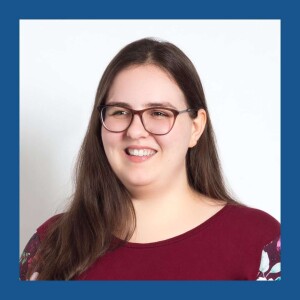
Thursday Apr 08, 2021
Thursday Apr 08, 2021
Télécharge la "Boîte à outils pour le doctorat" maintenant !
Qu'est-ce qu'Aristote a à voir avec ta recherche d'emploi ? Pourquoi devrais-tu utiliser des stylos de couleur pour écrire ta lettre de motivation ? En quoi la rédaction persuasive peut t'aider dans ton processus de réorientation professionnelle ? Dans ce nouvel épisode de Papa PhD, mon invitée, Alexandra Martel – une spécialiste du copywriting – va répondre à toutes ces questions et partager sa propre histoire de réinvention de carrière après sa license en droit.
Ce que tu apprendras dans cet épisode :
Comment faire le « framing » et la gestion des objections travailler pour toi avant une entrevue d'emploiComment Aristote peut t'aider - bien doser le logos, l'ethos et le pathos lorsqu'on se présente à un employeurPourquoi tu devrais te préparer à une entrevue d'emploi à l'oral et avec un.e ami.e (et tout enregistrer!)Comment tout simplement dire que tu est stressé.e peut désamorcer la tension en entrevueTu aimes Papa PhD ? Laisse-moi un commentaire ici - une seule phrase suffit ! Et inclus ton identifiant Twitter – comme ça je pourrai te remercier personnellement !
Liste de choses qu'Alexandra Martel n'aime pas : le marketing culpabilisant, les arguments de vente qui activent son détecteur de bullshit et parler d'elle à la troisième personne.Depuis 2017, Alexandra a enseigné la rédaction persuasive à des centaines d'entrepreneurs. Sachant qu'elle déteste écrire, c'est quand même pas pire. Ce qui la passionne? Comprendre ce qui se passe dans la tête des gens quand ils changent d'avis, qu'ils prennent une décision ou qu'ils achètent quelque chose.
Merci Alexandra Martel !
Si cet entretien avec Alexandra Martel t'a plu, fais-lui en part en cliquant sur le lien ci-dessous et en lui laissant un message sur Twitter :Clique ici pour remercier Alexandra sur Twitter !Clique ici pour partager avec David le principal message que tu retiens de cet épisode !
Joins-toi au groupe d'exploration de carrières Papa PhD !
Les perles de sagesse d'Alexandra :
« Il y a un sous-champ, si on veut, de la rédaction persuasive qui est le framing. Comment cadrer les choses pour leur donner un sens, pour leur donner une valeur. Je pense qu'une des premières choses à faire dans notre tête, c'est de voir un peu c'est quoi le lien, comment est-ce que mon parcours académique peut être une force et non pas du gaspillage ou une faiblesse, ou une perte de temps. C'est vraiment une fiction de penser que ce qu'on a fait à l'université n'a servi à rien, entre guillemets. Je ne pense pas que j'aurais un intérêt aussi grand pour la persuasion si je n'avais pas mon background en droit, si je n'avais pas eu un cours de plaidoirie. Il y a eu un impact de tout ça sur la personne que je suis et sur mes compétences. J'ai développé des compétences et une rigeur à l'université que je n'aurais peut-être jamais développées en dehors. J'ai acquis des compétences qui sont centrales aujourd'hui, dans ma vie. »« C'est quoi, le pathos et l'ethos? L'idée, c'est que si tu n'as que du rationnel, mais que tu n'as pas d'émotion et qur tu n'as pas établi ta crédibilité, les gens de vont pas croire ce que tu dis et ne vont pas s'y intéresser, de toute manière. Donc c'est vraiment important d'ancrer ce qu'on dit et les arguments qu'on présente dans de l'émotion et, aussi, de prouver notre crédibilité. Et le problème qu'on a quand on sort de l'université, c'est qu'on pense que la crédibilité, c'est nécessairement des diplômes. »
Les ressources de cet épisode :
Alexandra Martel | TwitterAlexandra Martel | LinkedInLes Mots Pour Vendre | Site web
Tu aimeras aussi ces épisodes :
Boîte à outils pour les études doctorales – Mon cheminement : PapaPhD.com/37Bruno Guglielminetti – Préparation à l'entrevue d'emploi : PapaPhD.com/84Mrim Boutla – Trouver sa tribu après le doctorat : PapaPhD.com/82Martha Boeglin – Débloquer la rédaction de thèse ...
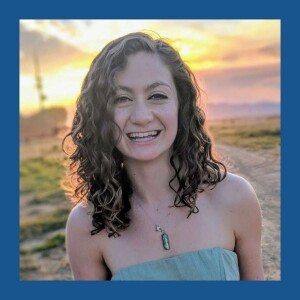
Thursday Apr 01, 2021
Thursday Apr 01, 2021
Do you have a business idea based on your PhD research? A consultancy or a deeptech project? Well, you are not alone. A lot of PhD researchers out there have plans to become their own bosses rather than getting a job, when they're done with their degree. In today's episode, you'll hear Jessica Steinberg's recount of her experience translating the knowledge she gained working on her thesis into a sustainable business.
What you’ll learn about in this episode:
Figuring out what aspect of your doctoral work is marketableTaking the risk and the time to invest in your entrepreneurial projectTaking the consultant routeNegotiating with clients as a young entrepreneurHow creating a personal board of directors can help youHow the accountability of a reading/writing/studying group can help you move your PhD forwardWhy you should be on LinkedInDo you enjoy Papa PhD? Leave me a comment here - one short sentence is enough! And be sure to include your Twitter handle – that way, I can thank you personally!
Support the show on Patreon !
Jessica Steinberg explores how change happens at the intersection of normality and unfamiliarity a cyclical process that is the 21st century embodiment of revolutions evolution. She is a PhD student at the University of Oxford researching the process of policymaking through the lens of cannabis legalization and commericalization. Jessica is setting precedence for emerging markets to refuse systematic replication. Her policy work takes place as an official delegate for cannabis related meetings held at the UN and WHO.Her academic work led to commercial opportunities. She founded and is the Managing Director of international cannabis consultancy, The Global C, and co-founder of a womens empowerment organization cultivating a space for women in the legal cannabis industry, entOURage Network. Jessica is Head of Community at Ohana CBD, a plant-based self care skincare company.
Thank you, Jessica Steinberg!
If you enjoyed this interview with Jessica Steinberg, let her know by clicking the link below and leaving her a message on LinkedIn:Click here to thank Jessica Steinberg on LinkedIn!Click here to share your key take-away from this interview with David!
Download "Tools for Your PhD Journey" !
Jessica’s pearls of wisdom:
“One thing I've started with at the center is a 3-hour reading-writing-working-studying session. It's hree sessions of 45 minutes of uninterrupted work, and then we have 15 minutes of break. And this is a common practice for people in general, it's not just for students. But if you can dedicate and block out that amount of time, knowing all of your notofications are off, your phone is in another room, your tab of social media are forgotten about – just totally non-distracted 45 minutes – what we have found from people who are joining these sessions is those three hours are the most productive hours of the day, if not the week, if it's the only session that they join.”“To my point earlier about a personal board of directors and how you can really fill your space with peolpe that you're learning from, that are challenging you – if LinkedIn is a space to do that, by all means, take advantage of the resources that are in front fo you. And I don't think an age or a gender should limit that. It's just a platform and it's how you choose to go about using it.”
This episode’s resources:
Jessica Steinberg | LinkedInJessica Steinberg | InstagramThe Big C | InstagramEntOURage | Instagram | Website | LinkedIn
Join the Papa PhD Postgraduate Career Exploration Group!
You might also like the following episodes:
Chris Kent – Leveling Up Into EntrepreneurshipEmily Roberts – The Power of the Side-Hustle or How to Set Yourself Up for a Healthy Financial LifeMargaret Magdesian – Finding Balance in the Eye of the StormKatina Rogers – Finding Your Place Professionally as a Humanities PhD
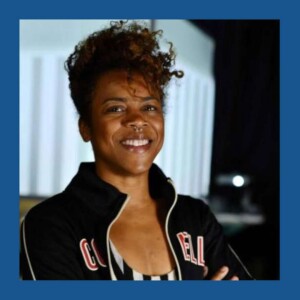
Thursday Mar 25, 2021
Thursday Mar 25, 2021
Welcome to episode 100 of the Papa PhD podcast! In a lot of the conversations I've had in past interviews here on the show, we have talked about how academia and graduate school need to change. For this special episode, I'm bringing you a conversation during which I got a glimpse at what that change can look like. With this week's guest – Shaz Zamore – we dove into the current diversity and inclusivity challenges facing academia today and into how addressing them can change the face of science and research.
What you’ll learn about in this episode:
Current roadblocks to diversity in university and in research
How we can widen the horizons of minorities early on
What has to change to make academia a really inclusive environment
Why having a support group where you can drop your guard is key
What a mentor can look like if you're working in uncharted territory
Best practices for widening your network of likeminded people
How changing how science and research is depicted on all media can positively impact young people who are minoritized or intersectional
How to think of your PhD from the point of view of the private sector and of entrepreneuship
The importance of finding joy and of giving yourself the rest you need, in whichever form it takes for you
Do you enjoy Papa PhD? Leave me a comment here - one short sentence is enough! And be sure to include your Twitter handle – that way, I can thank you personally!
Support the show on Patreon !
Shaz Zamore is a neuroengineer and STEAM Outreach Coordinator at CU Boulder. Looking to revolutionize access to STEAM learning, they are creating innovative interactive tools aimed at intersectional minoritized middle school students. Outside of work, Shaz has a penchant for creative coding, snowboarding, baking bread and woodworking.
Thank you, Shaz Zamore!
If you enjoyed this interview with Shaz, let them know by clicking the link below and leaving them a message on Twitter:
Click here to thank Shaz Zamore on Twitter!
Click here to share your key take-away from this interview with David!
Download "Tools for Your PhD Journey" !
Shaz’s pearls of wisdom:
“My advice is echoed by research – have a support group. Have a support group, have a support group, have a support group. Have people you can go and go back to your base code, go back to that natural language. Drop your guard, you know? Be yourself. Be really comfortable. You've got to have those, especially as any sort of minoritized, especially intersectional. Have your support group. For intersectional people, I will acknowledge it's super hard. For me, for example, black spaces aren't always queer friendly spaces. Queer friendly spaces aren't always black friendly spaces, and so it's a really hard thing to navigate. But still, even if you're not fully relaxed, even if you can't find a black queer space, for example, that combination, even those little bits that you get those steps that you get, if it's a single person, even, it goes so far.”
“I started to realize that there was nobody to look forward to, to say – OK, this is how you do it, this is what the decision is – because what I want to do is not really something that's been done before. And so it stops being looking ahead and seeing who is advanced, who is further, who is better, who can tell me things, and start looking to the side and saying – Who is doing something different? How are they accessing their path to success? How are they managing their work-life balance? How are they succeeding? Who are my allies? Who are people who I feel safe around as we move forward together?”
This episode’s resources:
Shaz Zamore | LinkedIn
Shaz Zamore | Twitter
Shaz Zamore | Instagram
Craniate | Website
Diversity In Academia | Instagram
Diversity In Academia Ko-Fi | ko-fi.com/diversityinacademia
Join the Papa PhD Postgraduate Career Exploration Group!
You might also like the following episodes:
Chris Humphrey – Rebranding the PhD
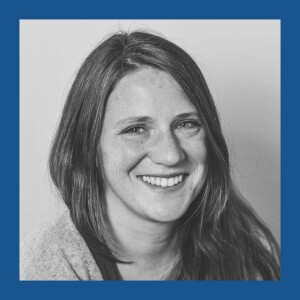
Thursday Mar 18, 2021
Thursday Mar 18, 2021
Télécharge la "Boîte à outils pour le doctorat" maintenant !
Que deviennent les docteur.e.s une fois sortis du milieu universitaire? Quel est leur rôle dans le tissu socio-écomonique aujourd'hui? Cette semaine, sur Papa PhD, on va parler du tiers secteur de la recherche et de projets d'intégration de docteur.e.s au sein de missions de science citoyenne et d'autres initiatives scientifiques en dehors du cadre académique. Pour ce faire, j'ai invité à mon micro quelqu'un qui Klask! (vérifiez sur son lien LinkedIn) – Ewa Zlotek-Zlotkiewicz.
Ce que tu apprendras dans cet épisode :
L'avantage de voir la thèse comme une partie d'un trajet professionnel dans un esprit donnant-donnant
Comment avoir des projets personnels peut dynamiser votre recherche
Ce qu'est le tiers secteur de la recherche et quel rôle peuvent y jouer les docteurs
L'intérêt de l'interdisciplinarité dans la recherche citoyenne et dans la recherche-action
Le projet Klask!, sa philosophie, ses ateliers
Tu aimes Papa PhD ? Laisse-moi un commentaire ici - une seule phrase suffit ! Et inclus ton identifiant Twitter – comme ça je pourrai te remercier personnellement !
Suite à un parcours que certain·ne·s qualifiaient de slashé (philologie, design, histoire d’art ancien...) Ewa a suivi une licence en Biotechnologies (à Cracovie), un master en Cancérologie et le master Approches Interdisciplinaires du Vivant au Centre de Recherches Interdisciplinaires de Paris. Suite à ce dernier, Ewa a décroché une bourse doctorale à l’École Doctorale du CRI pour réaliser une thèse en biophysique cellulaire à l’Institut Curie et l’Institut Pierre-Gilles de Gennes. Elle a préservé son côté divergeant pendant le doctorat et le garde encore en construisant avec d’autres docteur·e·s à Nantes, un projet qui met les compétences des docteur·e·s au service de l’innovation élargie – Klask ! Docteur·e·s et innovation sociale.
Merci Ewa Zlotek-Zlotkiewicz !
Si cet entretien avec Ewa Zlotek-Zlotkiewicz t'a plu, fais-lui en part en cliquant sur le lien ci-dessous et en lui laissant un message sur Twitter :
Clique ici pour remercier Ewa sur LinkedIn !
Clique ici pour partager avec David le principal message que tu retiens de cet épisode !
Joins-toi au groupe d'exploration de carrières Papa PhD !
Les perles de sagesse d'Ewa :
« La recherche, on la fait dans l'académie – c'est très bien – la recherche, on la fait dans l'industrie – c'est très bien –, mais la majorité des docteurs, en fait, sont ni dans l'un, ni dans l'autre et la recherche, on peut très bien la faire dans le milieu entre l'académie et l'industrie, pour la société, avec la société, avec les citoyens.ennes. Il y a le tiers secteur de la recherche qui se construit en France et ailleurs où il y a vraiment une organisation, une motivation de beaucoup de personnes, derrière, pour valoriser toute la science qui se fait, que ça soit de la science citoyenne, ou de la corecherche entre académiques et citoyens.ennes – énormément de choses... Il y a des associations de patients qui se motivent pour faire des projets de recherche, il y a des amateurs de nature, donc il y a vraiment une masse de choses qu'on peut faire. Vraiment, les compétence de docteur, on peut vraiment les mettre au profit de projets citoyens. Et c'est ce qu'essaie de faire Klask!, en fait. »
« Je pense que c'est important d'avoir des personnes de confiance avec lesquelles on peut discuter, en dehors de notre directeur ou directrice de thèse. Et c'est important, aussi, de voir la thèse comme une partie d'un parcours professionnel – en fait, c'est un boulot, ce n'est pas notre vie, ce n'est pas nous. C'est, en fait, juste un boulot, même si on veut le faire très, très bien. C'est très, très important – ce n'est qu'un boulot, en fait. Et si on s'épuise à le faire, eh bien, c'est ni bien pour notre boulot, ni bien pour nos recherches, ni bien pour nous, ni bien pour notre futur. »
Les ressources de cet épisode :
Ewa Zlotek-Zlotkiewicz | LinkedIn
Klask!

Thursday Mar 11, 2021
Thursday Mar 11, 2021
This week on Papa PhD, I'm talking with Caolan Kovach-Orr about his journey from the wet lab to a career in data science. During our conversation, we talked Caolan's academic journey, about what skills you should focus on as a candidate, today, if you're interested in data science, about the specifics of the interviewing process for data scientist positions, and Caolan shared specific advice based on his experience as a PhD in the corporate space, so be ready to take notes!
What you’ll learn about in this episode:
Why you shouldn't compare yourself to others as an atypical candidateWhat companies are looking for in a candidate, when hiring a PhDWhy you should invest in learning PythonHow a public track record of writing code can help you stand out in the hiring processThe importance of letting go of ego when transitioning to a new domainWhen to start networking with potential employersWhat an 11-stage interview process look likeSalary negotiation best practicesDo you enjoy Papa PhD? Leave me a comment here - one short sentence is enough! And be sure to include your Twitter handle – that way, I can thank you personally!
Support the show on Patreon !
Caolan Kovach-Orr Caolan earned his PhD in theoretical biology from McGill in 2015, his thesis focused on predator-prey interactions. He started, in industry, as a Data Scientist, and currently heads a data science & engineering team for Verisk Analytics. Caolan and his team continue to work on solving novel problems, such as getting regulatory approval for the US's first machine learning based insurance pricing product.
Thank you, Caolan
If you enjoyed this interview with Caolan, let her know by clicking the link below and leaving him a message on Twitter:Click here to thank Caolan Kovach-Orr on LinkedIn!Click here to share your key take-away from this interview with David!
Download "Tools for Your PhD Journey" !
Caolan’s pearls of wisdom:
“Data science problems now are actually not that hard to code. There have been a lot of people who've done a lot of work on open-source packages and, you know, 10 years ago somebody who could create a neural net model probably had to write the code for the neural net. Now there's hundreds, if not thousands of packages out there. Everything's kind of pre-configured, so the actual running of a model isn't that difficult. It may be knowing which model to use, knowing how to design your experiments, how to design your tests, how to design your data that can really make the big difference between something that works really well and something that's okay. And that's where you want to be as a PhD, as somebody who can do something really well. Because, honestly, I can teach most undergrads from a comp sci background how to run a neural net in an afternoon, maybe a week. So you don't want to be competing with them – they can just do it okay at that point. You want to be the person who can bring that next level of value.”“Moving up the corporate ladder is not about who's the best. It's just not. It's about who can help the most people. So you don't get that manager, directorship or VP position because you're the smartest person in the room – you get it because you will be able to help the people who report in to you and the people who you report to the most in that position, and so there's almost no room for ego.”
This episode’s resources:
Caolan Kovach-Orr | LinkedIn
Join the Papa PhD Postgraduate Career Exploration Group!
You might also like the following episodes:
Graydon Snider – Building your path to data scienceSimon Moore – Taking the leap into IndustryMargaret Magdesian – From the bench to entrepreneurshipPaulo Oliveira – Entrepreneurship and outreach as an academic
Need to communicate your research?
The research you produce is only as good as the way you communicate it.Scientistt Studio is an exciting science communic...
